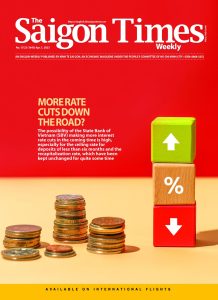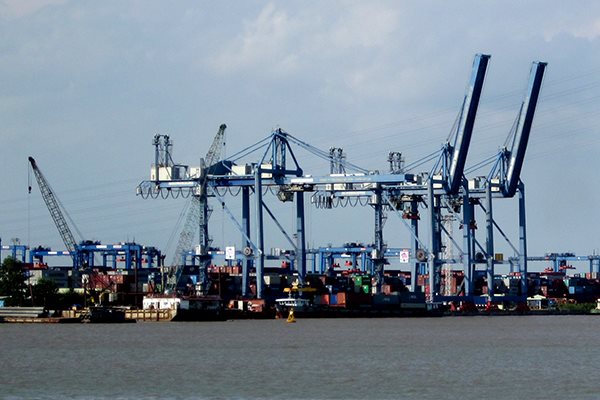The global minimum corporate tax policy is poised to take effect early next year, which may adversely affect Vietnam’s attraction of foreign direct investment (FDI) as the country has over the years offered tax incentives to lure investors
Binh Duong Province, a major venue for FDI in recent years, has lately voiced their worries over the possibly-eroded competitiveness in attracting FDI into the province in particular and the country in general, now that some 140 countries worldwide have agreed to apply the minimum corporate income tax rate at 15%. This tax rate applies to multinational corporations with revenue of at least 750 million euros, beginning early next year. That means if an MNC pays its income tax at a rate lower than 15% in any country of its investment, it will have to pay the difference in its home country.
“Such a change will cut into the competitiveness in attracting FDI into Binh Duong in particular and the country in general,” said Pham Trong Nhan, director of the provincial Department of Planning and Investment, at a mid-March forum in the southern province.
From a global perspective in terms of economic growth, healthy competition, and equitability among countries, the global minimum tax is a desirable tax reform to prevent tax avoidance by MNCs who may seek to shift their profits to tax havens or operate business via cross-border dititalization without physical presence in a certain country. However, once this tax reform is formally introduced, developing countries including Vietnam may find it tough to compete for FDI.
It is because in Vietnam, tax incentives have long been deployed as an effective tool to attract investors into priority areas, or to woo MNCs or high-tech giants. When the minimum tax applies, such investors will have to pay the balance in their home countries and as such tax incentives are no longer appealing.
“Tax incentives have long been a competitive edge for Vietnam in attracting investment,” said Lawyer Truong Thanh Duc, director of ANVI Law Firm. “If tax incentives no longer pay off, it will prove more difficult to attract major investors into priority industries in Vietnam.”
Seconding the opinion, Matsumoto Nobuyuki, chief representative of the Japan External Trade Organization (JETRO) in HCMC, observed that once the minimum tax regime takes effect, the FDI flow, including Japanese investment, into Vietnam will be affected.
In reality, apart from political stability, fast economic growth and low-cost labor, tax reduction and exemption policies have played a crucial role in attracting FDI into Vietnam.
Take hi-tech projects for example, the investors are exempted from corporate income tax in the first four years and enjoy a 50% reduction in the subsequent nine years. Further, they will be subject to a low income tax of 10% in the following 10 to 15 years, or even 30 years in certain cases.
 This concessional tax policy also applies to projects in economic zones or industrial parks provided that such projects are recognized as high-tech ones. Owing to such incentives, Vietnam has in the recent past been able to attract tens of billions of U.S. dollars from giants like Intel, Samsung, LG, and Foxconn among others. Currently, over half of Samsung smart phones distributed worldwide are made in Vietnam. For top-notch Apple products, many sub-contractors of this American multinational technology company have boosted production in Vietnam as well.
This concessional tax policy also applies to projects in economic zones or industrial parks provided that such projects are recognized as high-tech ones. Owing to such incentives, Vietnam has in the recent past been able to attract tens of billions of U.S. dollars from giants like Intel, Samsung, LG, and Foxconn among others. Currently, over half of Samsung smart phones distributed worldwide are made in Vietnam. For top-notch Apple products, many sub-contractors of this American multinational technology company have boosted production in Vietnam as well.
Projects committed into poverty-stricken localities are also subject to tax incentives similar to those applicable to high-tech projects. In early 2022, the Vietnamese Government even issued special investment incentives, under which investors will be subject to a corporate income tax rate of 5%, 7% or 9% within 30 to 37 years, depending on the level of their eligibility for standards associated with such incentives.
However, as the global minimum tax regime is in the horizon, such tax incentives in Vietnam will be neutralized, affecting the country’s competition for large-scale investment projects.









